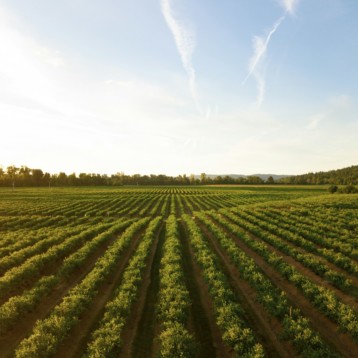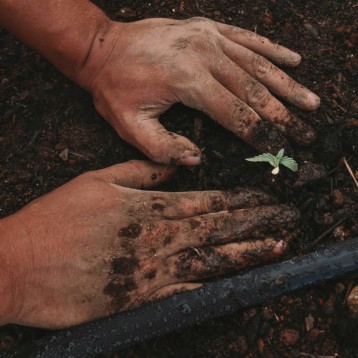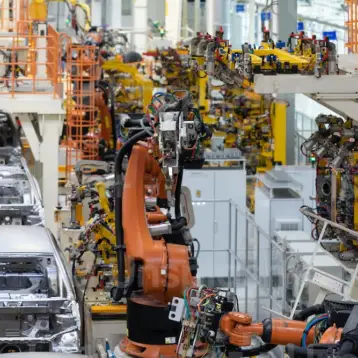|
The first step in creating bioliq fuel is placing plant material in a vacuum and heating it to 500 degrees Celsius in a process called pyrolysis. This results in an oily liquid called biosyncrude which is vaporized through exposure to a stream of pure oxygen gas. The resulting vapor is heated at high pressure until it reaches 1400 degrees Celsius in a process called gasification. Among the byproducts of the gasification is a mixture of carbon monoxide and hydrogen called syngas (short for synthetic gas). Once purified, the syngas is catalyzed into any of several fuel sources.
Syngas can also be produced from coal or natural gas; turning syngas produced from these fossil fuels into usable liquid fuel has been a commercial process in South Africa for some time. The bioliq process piggy backs on top of the existing methods, turning a method of developing petroleum-based fuels into a method of developing more ecologically friendly fuels.
Because creating bioliq fuel is a multiple step process with a specific byproduct in each stage, it can be manufactured in stages. Although researchers quickly realized that transporting sufficient wood and straw to a single central manufacturing plant would be prohibitively expensive and clog the roads with an overwhelming number of trucks, the biosyncrude can be produced closer to the source of the plant material and transported for further processing in this more compact state. German company Lurgi is working in combination with the Karlsruhe Institute of Technology to built a pilot plant for turning biosyncrude into usable biofuel. The plant, scheduled for completion in 2012, will work in conjunction with approximately 50 regional biosyncrude manufacturing centers.
This distributed model will make the fuel more affordable. The same study that indicated transporting raw plant matter to a central location would be prohibitively expensive estimates that using the regional pyrolysis plants could lead to biofuel sold for approximately the same price as traditional gasoline.
TFOT has previously reported on other biofuels including an approach that turns garbage and agricultural residue into ethanol, a jatroba biofuel successfully used to power a Boeing jetliner, carbon negative petrol excreting insects, and tests using biofuel instead of kerosene fuel in rocket engines.
Read more about the bioliq biofuel at the English version of the Karlsruhe Institute of Technology site devoted to the process and about a recent award in this KIT press release.











